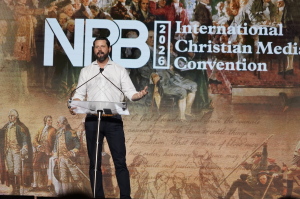Anti-Conversion Laws in the World's Largest Democracy

When we think of religious persecution, the Middle East comes to mind. But the world's largest democracy?
At this time last year, I urged BreakPoint listeners to pay close attention to the state of religious freedom around the world in 2015. I said that this most important of freedoms was in peril at home as well as abroad.
Little has changed in the past twelve months. If anything, the state of religious freedom is even more precarious, as events in India amply demonstrate.
Normally, when we think about the persecuted Church, what comes to mind are places like the Middle East and China. But as I told you two years ago, "the country that has witnessed the single greatest outburst of anti-Christian violence in recent years" is India.
I quoted from "The Global War on Christians" by John L. Allen, which told readers that in 2008, "a series of riots [in the state of Orissa] ended with as many as five hundred Christians killed," many of them "hacked to death by machete-wielding Hindu radicals."
Thankfully, there hasn't been a repeat of violence in India — a least on that scale — in the past seven years. But in some ways, religious freedom in India is in worse shape today than it was back then. In the past few years, six Indian states, including Maharashtra, which includes Mumbai (or Bombay, as it's better known), have enacted laws that effectively ban conversions from Hinduism to Christianity or Islam.
I say "effectively," because while the laws, at least as written, "only" ban conversions that are the result of "force, allurement or fraudulent means," these terms are extremely vague. So much so that something like providing free medical care — a moral obligation given the sorry state of India's health care system — could be seen as "allurement."
Likewise, the term "force" includes the "threat of divine displeasure." Thus, talking about hell could be interpreted as a use of force, or at least coercion. What's more, many of the laws require people to inform authorities prior to conversion or even, in some instances, to seek permission before converting.
The Hindu nationalist proponents of these laws claim that they're protecting vulnerable populations from being exploited by what they see as "political tools" being wielded by "foreign powers."
The bad faith of this argument can be seen in the fact that the states that have adopted these measures have large populations of "untouchables," more properly known as Dalits, and Adivasi, also known as "tribals." These groups occupy the lowest rung of Hindu society and have been treated accordingly by their higher caste neighbors.
Not surprisingly, they are the people most likely to convert, sometimes to Islam, more often to Christianity. Thus, the violence in places like Orissa was, in part, an effort to preserve Hindu caste hierarchies.
If the concern was for the well-being of these people, the far better and more decent approach would be to end caste discrimination instead of trampling on their religious freedom.
But of course, that wasn't the concern. Tarun Vijay, a prominent Hindu nationalist, justified these measures by saying that "for the first time [in India], the population of Hindus has been reported to be less than 80 percent. We have to take measures to arrest the decline. It is very important to keep the Hindus in majority in the country."
"Measures" include a proposed national anti-conversion law, with the Orwellian title "The Religious Freedom Bill."
While the State Department's 2014 Religious Freedom Report mentioned these anti-conversion laws, there's no evidence to suggest that President Obama brought up this gross violation of religious freedom when he visited with India's Prime Minister Modi last year.
This is a shame. Our government may not want to talk about it, but that shouldn't stop us.
This article was originally posted here.



























